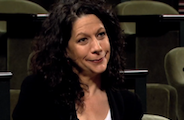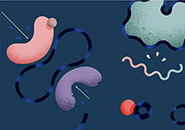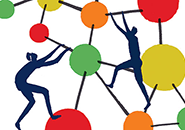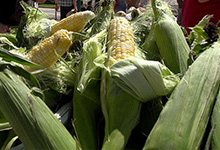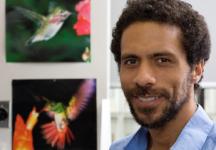Books have the ability to take us places we’ve never been, to teach us concepts we didn’t know, and to introduce us to people we’ve never met. Often, long after we’ve closed a book, its contents will stay with us. Here, four HHMI investigators recall some of their memorable reads.
 |
Oliver HobertHHMI Investigator |
|
A disparaging remark often heard from reviewers and editors is that a piece of work is “too descriptive.” This statement never ceases to perplex me. Javier DeFelipe’s wonderfully illustrated book Cajal’s Butterflies of the Soul: Science and Art – its poetic name is derived from Cajal’s description of pyramidal neurons in the neocortex – serves as a brilliant reminder of the importance of descriptive science. The book conveys the beauty of such work and encourages me to keep pursuing several highly descriptive lines of research. |
|
 |
Jeannie LeeHHMI Investigator |
|
In George Orwell’s Animal Farm, I came to understand that one of Snowball’s seven commandments – the transfiguration of “Four legs good, two legs bad” to “Four legs good, two legs better” – was a sign to validate animal models. I am once again embracing human cellular models. |
|
 |
Erich JarvisHHMI Investigator |
|
I had my lab read George Gopen’s Expectations: Teaching Writing from the Reader's Perspective, a book about writing skills focused on what scientists and other professionals expect to read in articles, grant proposals, and books. Gopen, a Duke University professor who studies writing, claims that our prose can be more successful if we consider the common reader’s perspective and expectations. After I started using Gopen’s suggestions, I found that my grants and papers were more understandable. It didn’t mean that my readers agreed with me, but at least they grasped what I was trying to explain. |
|
 |
Nicole KingHHMI Investigator |
|
When I was in graduate school at Harvard, paleontologist Andy Knoll handed me a copy of The Evolution of Individuality by Leo Buss, which opened up an entirely new way of thinking about evolution and development for me. The book provides a beautifully written and compelling framework for thinking about the meaning of “individuality” – a topic that is central to my lab’s work on multicellularity and the interactions between eukaryotes and environmental bacteria. It has become required reading for all new members of my lab. |
|
Photos: Hobert: Kevin Wolf; Lee: Kevin Wolf; Jarvis: Jonathan Fredin; King: Alison Yin
